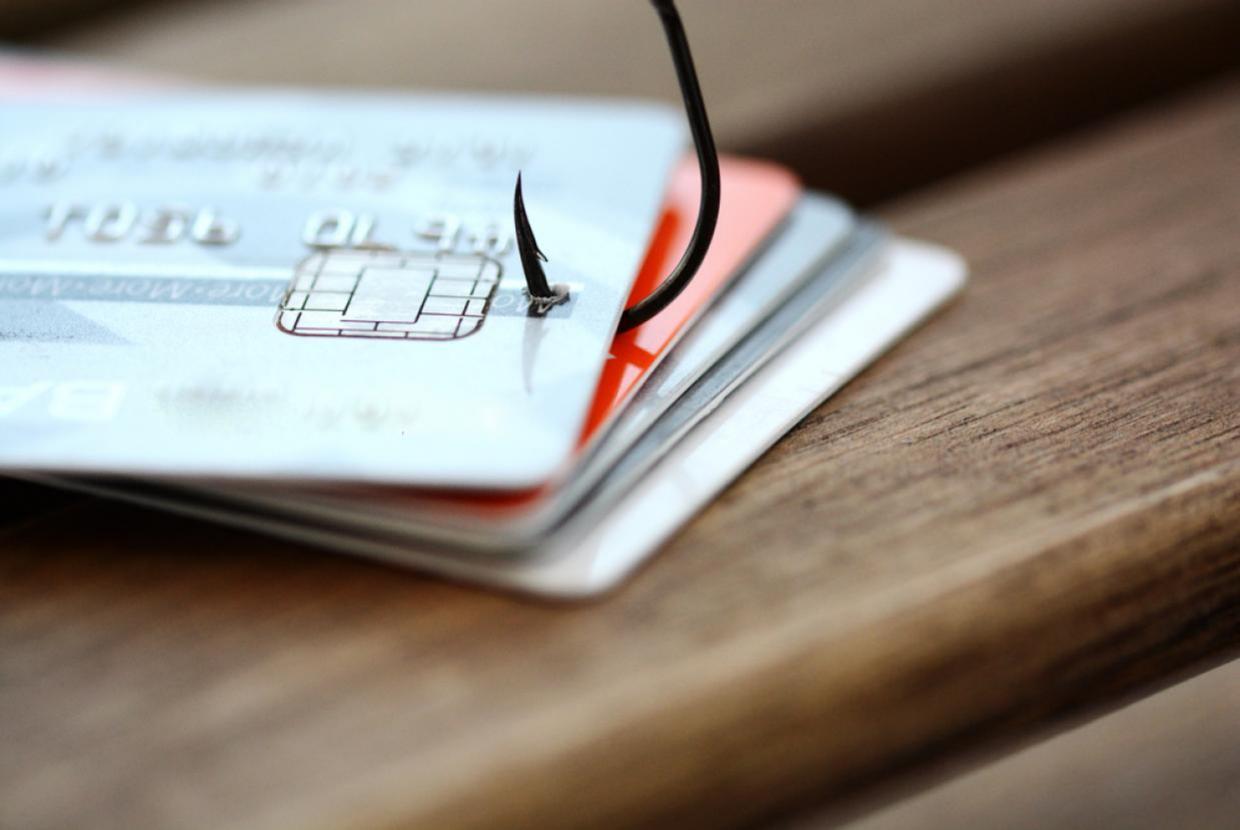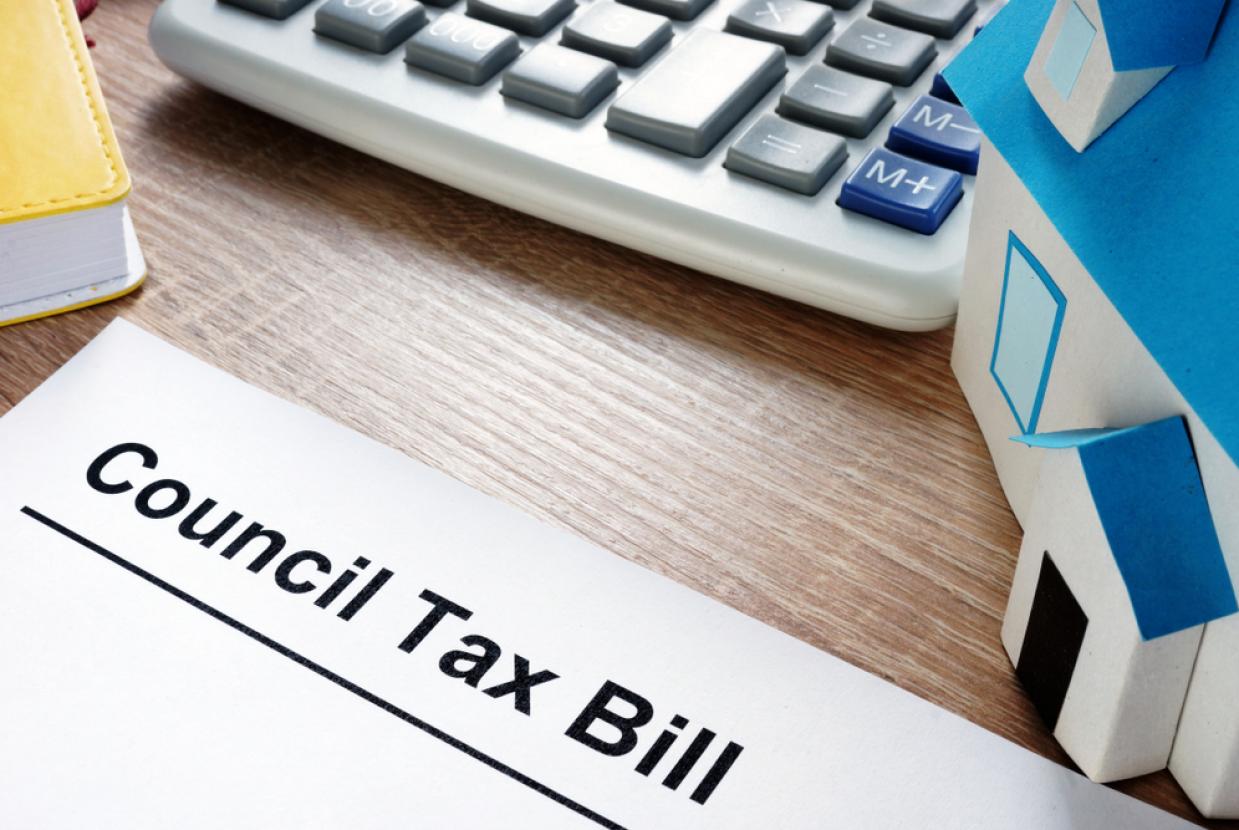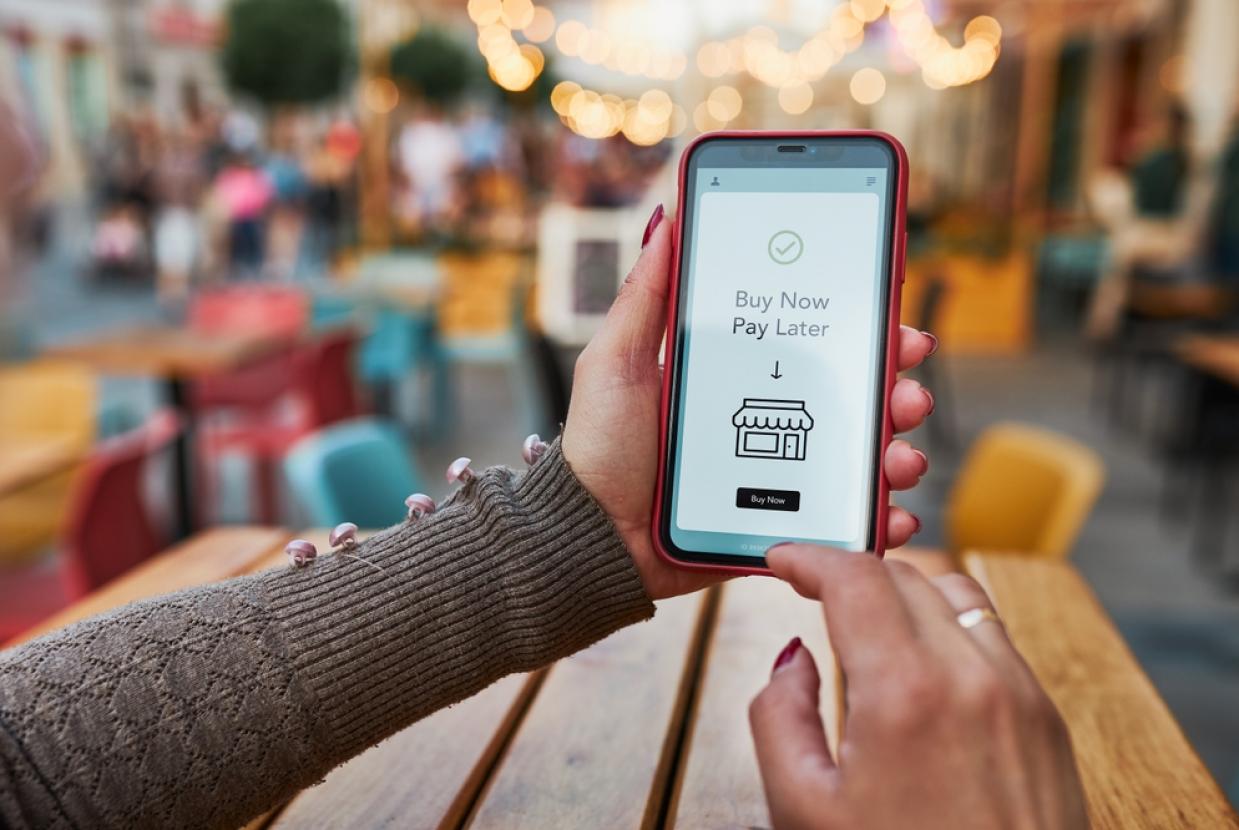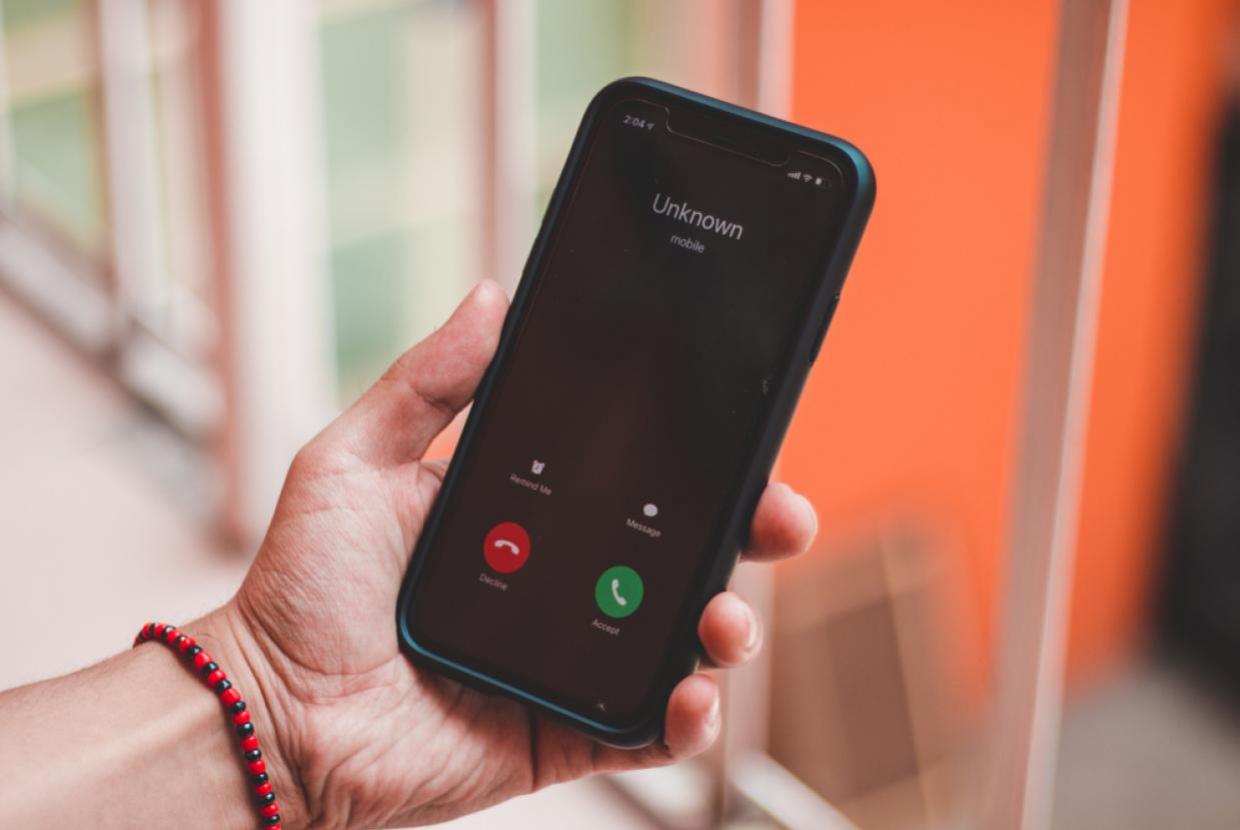Types of Scams
Scams can come in many different disguises. So it’s important to know the warning signs to look out for and what to do if you have, or think, you’ve been targeted.
Phishing
This is an email scam where you appear to get a message from a legitimate source, such as your bank, HMRC, PayPal, Apple or Amazon.
The message will encourage you to click a link and log into your account, normally by telling you your account has been locked or there’s a large transfer of money.
In reality, the link in the email goes to a fake website which collects your information. Another version of this scam involves an email attachment – perhaps a coupon or form you need to fill in – which is in fact a computer virus.
How to spot it
There are two main ways to spot a phishing scam:
- Look at how you’re addressed in the email. Scammers will use a general greeting such as Dear Sir, Dear Madam or Dear Customer. Legitimate emails will use your name.
- The email address the message has been sent from. Open the email and expand the pane at the top of the message and look at the email it was sent from. If it’s a real message, it will come from a recognisable address – such as ‘noreply @ bank.com’. Scammers won’t be able to send messages from a real domain name. So the email addresses will be filled in with random letters or numbers, such as ‘noreply @ 1234.bank.com’, or have deliberate spelling mistakes.
What to do
Never click the links in a suspicious email. If you think there might be a legitimate problem with an account, go to the website directly and log in. This way, you’ll never be caught out by a fake website.
Some organisations, such as HMRC, have an email address you can forward these emails on to, which helps them combat scams.
Vishing
Vishing is when scammers call and pretend to be from your bank, building society or even a government agency.
During the phone call, the fraudsters will attempt to get you to reveal your personal details, or even to transfer money out of your bank account.
Scammers may use the method of ‘number spoofing’ while doing this. Number spoofing usually involves the scammer changing their caller ID when making a phone call.
How to spot it
It’s very difficult to spot. The big tip-off is that the caller will be desperately trying to get you to reveal your information, which no legitimate caller would ask you to do.
What to do
If you’re sure the call is fraudulent, just hang up the phone.
If you’re not sure, hang up the phone and call your bank/building society on the number on your debit or credit card.
This means you can be sure you’re going to the right people. And if there is a problem, they can tell you about it.
But be careful. Scammers can hijack your phone line. So when you hang up, wait a few minutes before calling your bank or building society or use a different phone.
Identity theft and scams
Identity theft is when your personal details are stolen and used for crime activity. Identity fraud can happen when those details are stolen then used to commit fraud.
If you’ve had your identity stolen, find out how to report the crime, what your bank can do to get your money back and how to get support if you’ve been left in financial difficulty.
If you’re worried about identity fraud and need to consider actions, such as a protective registration, CIFAS can help you. You can also look into getting a freeze on your credit report. You’ll need to do this with Experian, Equifax and TransUnion separately.
Investment scams
These are often social media-based scams from celebrity endorsements or hacked accounts from people you know, although you might be targeted in other ways, such as email, via phone or people coming to your house.
Although investment scams vary, the principle remains the same. You’re encouraged to hand over money to invest in a company or product that doesn’t exist. There is usually no existing investment, along with the scammer stealing your money.
How to spot it
It can be quite difficult. Many of the companies the scammers are calling from or trying to get you to invest in can look legitimate – with websites, social media profiles and fake testimonials.
See if the investment company or adviser investor is regulated by checking the register on the Financial Conduct Authority (FCA) website. Check whether the company is on the FCA’s warning list or you can contact them directly on 0800 111 6768.
If you have doubts you can check to see if the company exists by searching for it on the Companies House website.
No legitimate company will contact you out of the blue about an investment opportunity. Treat any unexpected contact like this with caution. A big warning sign should be if you’re told an investment offers a high rate of return with little risk. Cryptocurrency investments are often used as money is difficult to trace.
What to do
Report scams to the FCA or Police Scotland, even if you have not lost money. Or, if you’ve had money stolen through suspected investment fraud first contact your bank and then report it online to Action Fraud or call them on 0300 123 2040.
Cryptocurrency scams
Another growing way of people being scammed is via cryptocurrencies. Cryptocurrency is digital money. It doesn’t exist in physical form – so there are no coins or notes. Cryptocurrencies are all transferred, stored or traded electronically.
Job scams
There are a variety of job scams. These range from dodgy remote working schemes, promises of a new career, where you’re asked to pay upfront for training or materials, to being offered non-existent jobs abroad, where you’re asked to pay a fee to organise visas and accommodation.
A more recent type of job scam is the ‘work from home’ and flexible working employment scams. You may be told that you’ll make easy money – and you might be asked to pay a fee upfront.
Scammers behind these fraudulent schemes will ask for personal details such as your passport and driving license details. The scammers will also create a WhatsApp-based fake peer group chat to ‘prove legitimacy’ as well.
To further prove this fake legitimacy, ‘wages’ are usually paid for the first transaction. However, after that you are asked to pay increasing amounts to be able to access the next level of ‘earnings’. The scammers then take the money, and you are blocked on WhatsApp and are usually unable to contact them after that. No employer will ask you to pay them. Ignore any scammers who contact you with suspicious sounding job offers.
To find out more about employment fraud, visit Action Fraud. However, the ‘leads’ or products turn out to be worthless and – worse still – your registration details might be sold on to other scammers.
Pension scams
Since the pension freedoms were introduced in 2015, retirees are able to access large sums of money from pension pots.
An unfortunate side-effect has been that this group is now being targeted by scammers because they can potentially access large amounts of cash. Pension scams will usually follow a similar path to investment scams.
How to spot it
Unsolicited phone calls, or any unrequested contact via social media or email, should be treated as suspicious. Anything involving high returns with low risk should ring alarm bells. From 2019, the Government banned cold calls by telephone about pensions, but scammers are using social media and email to get around this. If you want to be sure a company is legitimate, check the FCA register, the FCA warning list and the Companies House website
What to do
Report scams to the FCA, Action Fraud or Police Scotland, even if you have not lost money.
Or, if you've had money stolen through suspected investment fraud, report it to Action Fraud online or call them on 0300 123 2040.
Romance fraud
Some fraudsters will connect with you on a dating website using a fake profile. They’ll be up-front about living overseas and will email you, getting to know you over time and becoming affectionate and romantic.
When you’ve become involved, they’ll start asking for money for a sick relative or for a plane ticket to come and visit. They’ll take your money but never appear.
Ofgem scams
Some scammers are now pretending to be Ofgem, offering to save you money or help you switch to another energy provider.
Find out about what to do if you’re worried about your energy bills.
They may do this by contacting you via text message, email or another way, asking for personal details such as your bank details. These are scams, as Ofgem would never contact you this way or ask for personal information.
Authorised push payment (APP) fraud
Authorised Push Payment (APP) fraud, commonly known as ‘bank transfer scams’, is when scammers trick you into sending money to them. They do this by posing as a legitimate business, often by intercepting or hacking your email account. It’s also the tactic used by scammers posing as your bank.
This scam often occurs when you’re in the process of buying a house, having building work done on your home or booking a holiday. The scammer intercepts a company’s email and sends you a message asking for payment. Because you’re expecting to have to pay a bill, it can be difficult to spot that this is a scam.
There’s a new common scam where you might get a text or WhatsApp from a new number, telling you that they’re a friend or relative that needs money. The messages can be worryingly convincing. If in doubt, call or message the person they’re pretending to be on their old number to double check.
You might think you are making a legitimate investment through your bank but the fraudsters are taking your money. You might be encouraged to buy cryptocurrency, open up a new bank account with a digital bank which has no history of previous transactions. These are common warning signs.
How to spot it
Spotting push payment fraud can be very difficult as it can occur at a time when you’re expecting to be asked for payment or at a time when you feel under pressure, for example when a scammer is pretending to be your bank. Don’t assume all messages are genuine.
What to do
If you are paying by bank transfer, you need to be 100% confident that you know who the recipient is, as it can be hard to get the money back. Be warned, your bank or the police will never ask you to transfer money to a ‘safe’ account, so this is a clear warning sign that it is a scam.
Check the company you expect to be paying sent you the email, and that the bank details match.
If you do fall victim, new rules introduced by the FCA mean you can now make a complaint to your bank and the bank receiving the payment.
New rules that came in on 7 October 2024 now require banks and payment providers to reimburse you if you sent money by UK bank transfer and are a victim of APP fraud. They must send your refund within five working days after you make a claim. The new rules include an “optional £100 excess” that your bank or payment provider can deduct from your claim.
You’re covered if you use:
- Faster Payments: this is what you will typically use to send free, quick bank transfers instantly to another person or business.
- CHAPs: this is usually used for high value transfers, guaranteed to arrive the same day. For these transactions you’re covered by an equivalent rule set out by the Bank of England.
Before 7 October there was a voluntary code for banks and payment providers. This meant that there was no mandatory requirement for banks to refund victims of APP fraud.
- Any payments made on or after 7 October 2024 are covered, but if you made a payment before this date and think it could be a scam, your claim would fall under the previous voluntary code of practice.
- The maximum amount you can claim is £85,000. If you lose more than this, you can raise a claim with the Financial Ombudsman Service. You can find out how the Financial Ombudsman Service can help you in our guide.
- Claims are subject to a 13-month time limit after the last payment was made to a scammer, so it’s important to notify your bank or payment provider as soon as possible.
Safe account scams
You’ll be contacted, usually on the phone by someone claiming to be from your bank’s fraud department, the police or a regulatory body such as the FCA. They’ll say your account has been compromised in some way and encourage you to transfer all your money from your bank to a ‘safe account’ they control.
Never give out your bank account, PIN numbers or credit card details unless you are certain who you are dealing with.
How to spot it
It can be very difficult as the scammers play on your fears about people illegally accessing your money.
But the easiest thing to remember is banks will never ask you to transfer money into a ‘safe account'.
If your account has been hacked, your bank will be able to stop money coming out of it very quickly and there would be no point in transferring your money to a different bank account.
What to do
If you’ve been contacted on the phone, just hang up. And if you’re worried about your account security, call your bank directly.
If you’re a victim of this kind of fraud, contact your bank.
Loan fee fraud
If you’re searching for loans online, you might be contacted by fraudsters offering you a loan directly. You’ll be asked to pay an upfront fee to receive the loan, but the money will never be sent to you.
How to spot it
You should never be asked to pay a fee in advance for a loan. Scammers might also ask you to pay the fee in unusual ways, such as by iTunes vouchers or a money transfer service.
What to do
Make sure you’re using a legitimate loan provider by checking the FCA website.
For further information, visit - Types of scam | MoneyHelper






























